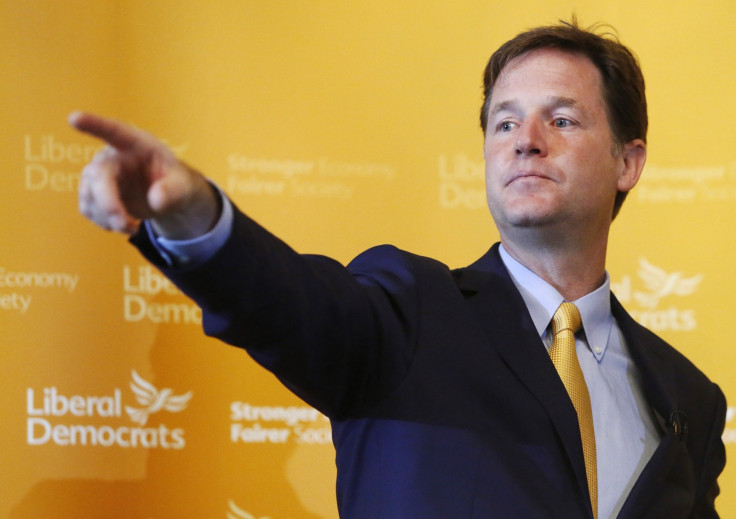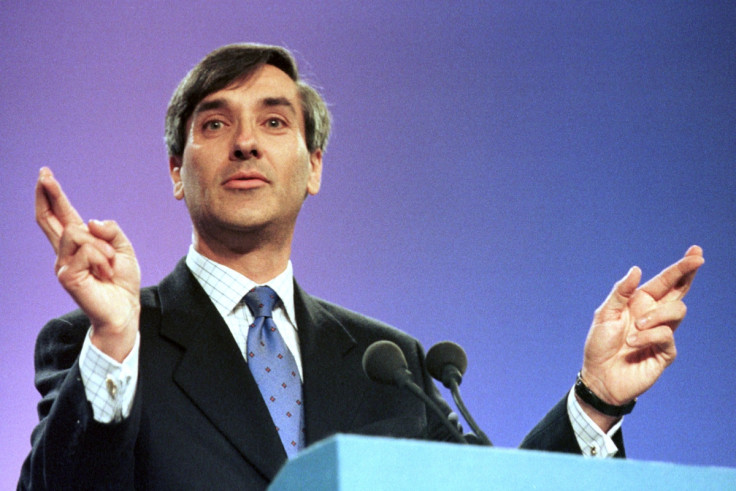UK Is Facing a Constitutional Quagmire as Nick Clegg and Nigel Farage Demand More Devolution

Talk to anyone involved in the Scottish referendum, from either side of the argument, and they will all tell you one thing: this extraordinary campaign has electrified politics and engaged voters in a way that has never been seen before.
The fact that 97% of the electorate ensured they were registered to vote is an astonishing statistic, and the prediction is that turnout will be well above 80%, a figure unthinkable in any election of any sort anywhere in the UK.
And it has led increasing numbers of politicians across the party divide to leap to the conclusion that putting similar power into the hands of voters elsewhere in the country may finally be the answer to the distrust, disillusion and disengagement that have marked UK politics for decades.
Meanwhile, the Westminster parties' panic-inspired pledge to give Scotland devo max if they stick with the UK has hugely strengthened the existing demands for regional and local devolution to balance the constitutional scales.
The ultimate irony will be if Scotland votes "no" - and the polls show it is now too close to call - the massive concession will have been unnecessary and this looming constitutional quagmire, which is set to bog down the next government for years - and probably won't work anyway - could have been avoided. But it appears there is now no going back.

A new constitutional settlement for the entire UK with more powerful local politicians rooted in their regions and cities and not part of the Westminster establishment is suddenly being seen as the answer.
Liberal Democrat leader Nick Clegg and Ukip's Nigel Farage have both travelled to Scotland to push their separate but linked demands for devolution to the regions.
Clegg wants powerful, combined local authorities led by elected "metro mayors" while Farage wants a specific voice for England in a federal United Kingdom.
Labour is already committed to greater regional devolution and a Commons committee is to investigate the fundamental reshaping of the political UK.
And this week, amid demands from senior Tories such as John Redwood for an English parliament, William Hague suggested more devolution to regions and nations was inevitable. He said: "The great strength of the United Kingdom is that it is not a rigid union, it is a living, flexible union."
It appears to have become a new consensus that, whatever the outcome of the referendum, the UK will undergo a constitutional revolution.
For some it is a necessary move to answer the inevitable "what about the rest of us" backlash but many more seem to view it as a positive answer to all the questions over the current parlous state of Westminster-led politics.
The Scottish experience, they argue, has shown that when voters have real power over their own destinies, they become engaged and use it in great, enthusiastic numbers.
But where is the real evidence that voters elsewhere want the sort of constitutional change everyone is now promising to offer them?
Labour's plans for eight big, powerful English regional assemblies were hyped to the rafters, until voters overwhelmingly rejected them in a referendum in 2004.

Outside London, there has been widespread apathy and opposition to elected mayors. And elected police commissioners, seen as another means of giving power to the people, have proved a disaster and will be scrapped by a Labour government.
Of course, there has been lots of talk about constitutional renewal over recent years and, as many MPs will tell you, vague proposals have either evaporated or been kicked into the longest grass largely because they open a can of worms.
The current plans for recall of MPs, for example, are a hugely weakened version of what was originally promised, the result of the reality of the problems with such a policy crashing into the debate.
It may well be that in the aftermath of the Scotland campaign, voters' antipathy to yet more politicians and parliaments/assemblies elsewhere is trumped by enthusiasm for more local power.
But it may also be that those politicians who see mass devolution as the answer to the problems corroding British politics are way off the mark and it could even prove counter-productive and divisive.
Either way, it is beginning to look like this is an idea whose time has come and resistance is futile.
© Copyright IBTimes 2024. All rights reserved.






